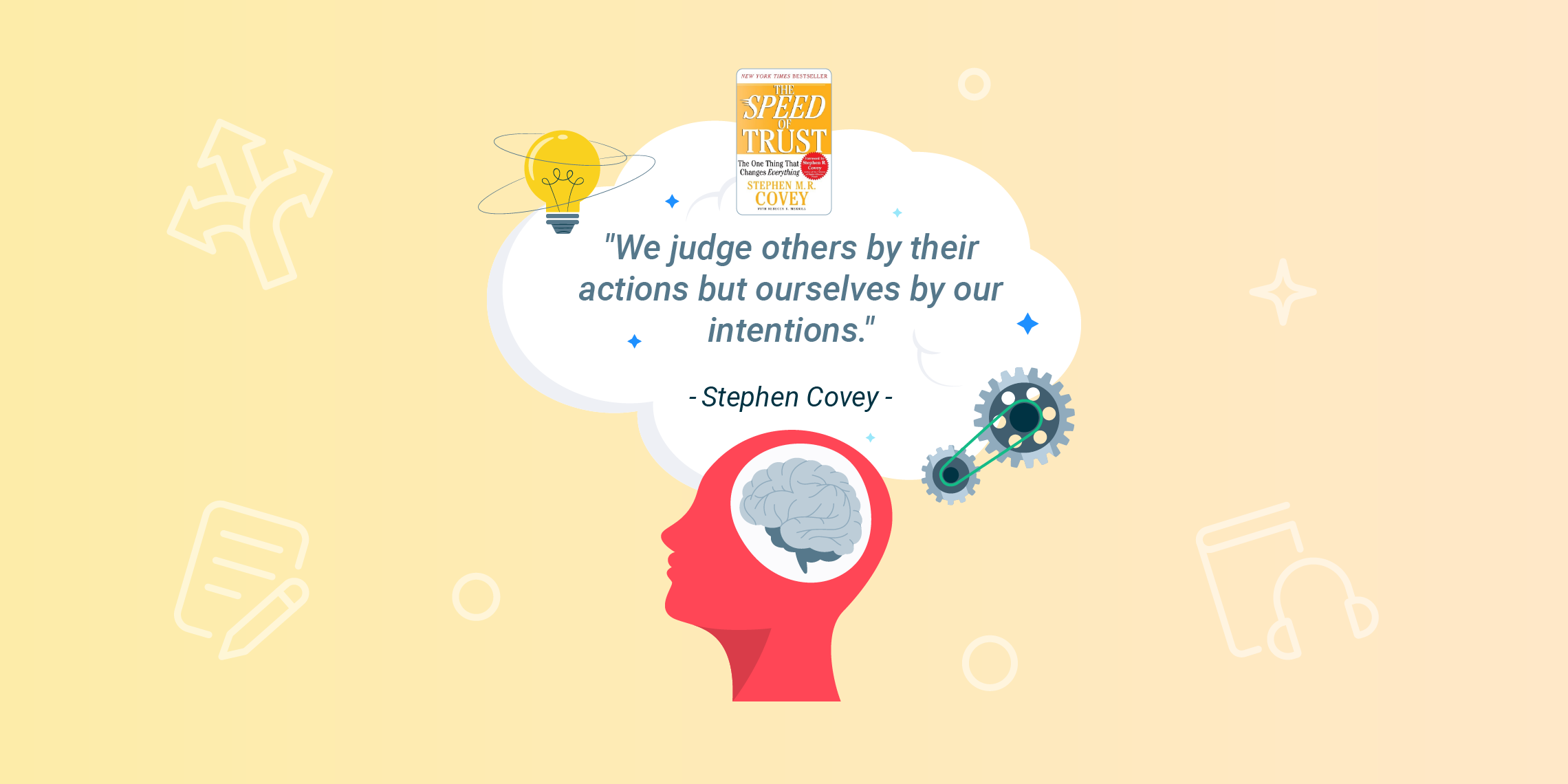
In today’s fast-paced world, finding time to settle down with a book is a luxury many of us can’t afford. This is why I often find myself turning to audiobooks to keep up with my passion for learning and self-improvement. It’s a great way for me to do so while I’m out on a run. On one such occasion, I found myself engrossed in Stephen Covey’s 2006 book, “The Speed of Trust: The One Thing that Changes Everything”. The profound insights it offered me made me reflect quite deeply into my own life, especially with one quote that struck a deep chord within me: “We judge others by their actions but ourselves by our intentions.”
These words, for whatever reason, resounded with me more than usual. It was like someone had held up a mirror to my behaviour, forcing me to self-reflect and acknowledge things (I could call them hypocrisies) that I had been blind to. I realized that, more often than not, I can be quick to judge others by their actions while letting myself off the hook because of my “good” intentions. I put quotes around these because even those words make me question whether or not that’s true. This understanding came as a revelation, prompting me to reassess my actions and attitudes both in my personal and professional life.

Reflecting on this newfound insight, I thought back to my role as a manager at my workplace. There had been instances where I had become frustrated with my team for repeated, albeit careless, errors. I won’t name specifics for confidentiality reasons, but not going to lie, how I reacted in response also surprised me now that I think about it too. In response to these mistakes, I had found myself labelling my team members as “careless” and “uncommitted”. My frustration led me to assume the role of a micromanager, taking over their tasks under the guise of correcting their actions because “if I did it myself, then it would be done right” and “I can also get it done faster”.
However, listening to Covey’s words made me question my approach thinking back. In my mind, I had set an expectation of what I wanted, but I had not fully communicated my expectations to the team, leading to disappointment on my end when I don’t get what I’m looking for, and disappointment on their end when they were confused as to what I wanted. Even worse, I would step in and take over after they had finished to “finish the work”, I was denying them the opportunity to learn and grow in their roles. I had made snap judgments about their performance based purely on their actions, without considering their intentions or the circumstances they might have been under.
This understanding led to a significant shift in my approach to management. I made a conscious effort to clearly communicate my expectations to my team members and to give them the space they needed to learn and grow. We worked together as a team to create a strategy that we agreed upon, and instead of rushing to judgment based on their actions, I tried to understand the intentions behind those actions. This new approach led to a noticeable improvement in the team’s morale and the overall quality of our work.
To sum it all up, it’s a great read! Honestly one of the more transformative audiobooks I’ve listened to all year. It prompted a significant shift in my attitudes, encouraging me to understand more, judge less, and just be more patient with others overall. It challenged me but also enriched me, paving the way for stronger relationships built on trust and understanding.



